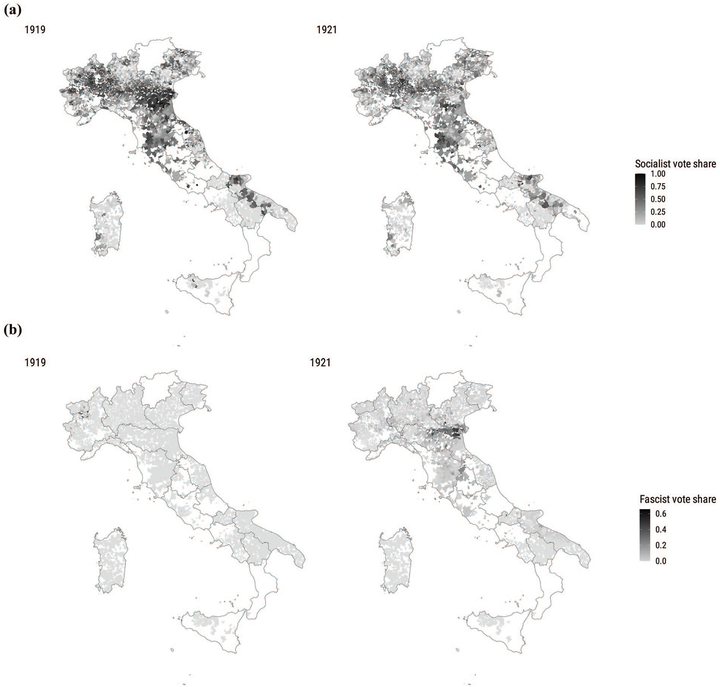
Abstract
What is the effect of political violence on electoral support for anti-system parties? We argue that the effect of violence is asymmetric and predominantly benefits nationalist, radical-right parties. Posing as defenders of the nation, nationalist parties benefit from violence by their political opponents and violence targeted against perceived threats to the nation. Two potential mechanisms underlie this asymmetric effect. First, nationalist violence becomes an acceptable means of defense in the eyes of status quo-oriented voters if they attribute blame to out-groups who used violence first. Second, nationalist violence itself increases the salience of a threat to the nation, and voters concerned with preserving the status quo see radical right parties as its most effective defender. To test this argument, we collect novel actor-based and geospatial data of political violence in interwar Italy. Using a difference-in-differences estimator, we model the effect of violence on vote shares of anti-system parties at the municipality level in the 1919 and 1921 elections. Our results indicate increasing electoral support for the nationalist Fascist party in municipalities that experienced violence committed by either the far right or left after the 1919 election. In contrast, the radical left Socialist party loses electoral support if violence occurs. These results are robust to different specifications, modeling choices, and measurement approaches. We conclude by discussing the relevance of our findings for violence in liberal democracies today.